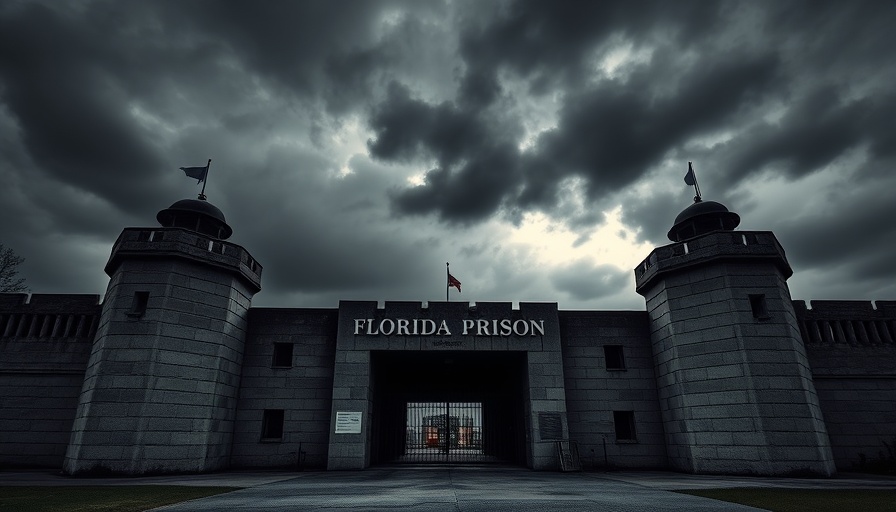
Florida's Execution Rate Hits Alarming Numbers
In a move that has sparked intense debate and raised ethical questions, Florida has scheduled its 13th execution of the year for a man convicted of fatally stabbing a couple during a robbery. This growing trend places Florida at the forefront of capital punishment practices in the United States, drawing attention from both advocates and opponents of the death penalty.
Context Surrounding Florida's Execution Policy
Florida has historically been a state that embraces the death penalty. This year, the state's execution schedule reflects a broader national conversation about criminal justice and the merits of capital punishment. According to a report by the Death Penalty Information Center, Florida ranks second in the United States for the number of executions, following Texas. This escalation raises questions about the state's approach to justice, particularly regarding violent crimes.
Why This Matters: The Impact of Crime on Society
The recent cases of severe violent crime, such as the double murder committed during the robbery, underscore the public's demand for justice and safety. As the crime rate fluctuates, communities often come together to call for significant punitive measures against those who commit serious offenses. The families affected by such crimes seek closure, which can make the death penalty seem like a viable option. This turbulence in the criminal justice system may reflect broader societal anxieties about safety, justice, and morality.
Counterarguments: The Case Against the Death Penalty
Despite the support for capital punishment, there are several strong counterarguments that challenge its validity. Critics argue that the death penalty does not effectively deter crime and may lead to wrongful convictions. Numerous studies show that a significant number of exonerations have occurred post-incarceration on death row, highlighting systemic flaws in the judicial process. A 2021 report by the National Academy of Sciences indicated that the risk of executing an innocent person remains a pressing concern. These factors fuel ongoing debates regarding the moral implications of state-sanctioned executions.
Future Predictions: The Evolution of Execution Practices
As societal attitudes towards the death penalty evolve, Florida's current trend might not last indefinitely. Progressive movements push for criminal justice reform leading to the abolishment or reduction of capital punishment practices. Public opinion is rapidly shifting, with younger generations voicing their opposition to the death penalty, craving a justice system that prioritizes rehabilitation over retribution. Looking forward, it's plausible that we may witness legislative efforts to reevaluate the parameters and justifications behind execution policies.
Emotional Perspectives: The Human Cost Behind Executions
The emotional aspect of executions cannot be underestimated. For families of victims, while the death penalty may provide a sense of closure, it is also a reminder of the tragic loss they have suffered. Conversely, families of those executed often experience profound grief and trauma over losing their loved ones to the state’s actions. This complex web of emotions fuels discussions on whether capital punishment truly delivers justice or merely perpetuates a cycle of violence.
Conclusion: The Need for Open Dialogue on Capital Punishment
The scheduled executions in Florida exemplify the state’s contentious relationship with capital punishment. Community members, lawmakers, and activists must engage in open dialogue to assess the implications of Florida's soaring execution rate. It is essential to consider diverse perspectives and foster discussions that could inform future legislation surrounding the death penalty system. Only through comprehensive understanding and empathetic conversations can we hope to evolve towards a more equitable approach to justice for all.
 Add Element
Add Element  Add Row
Add Row 



Write A Comment